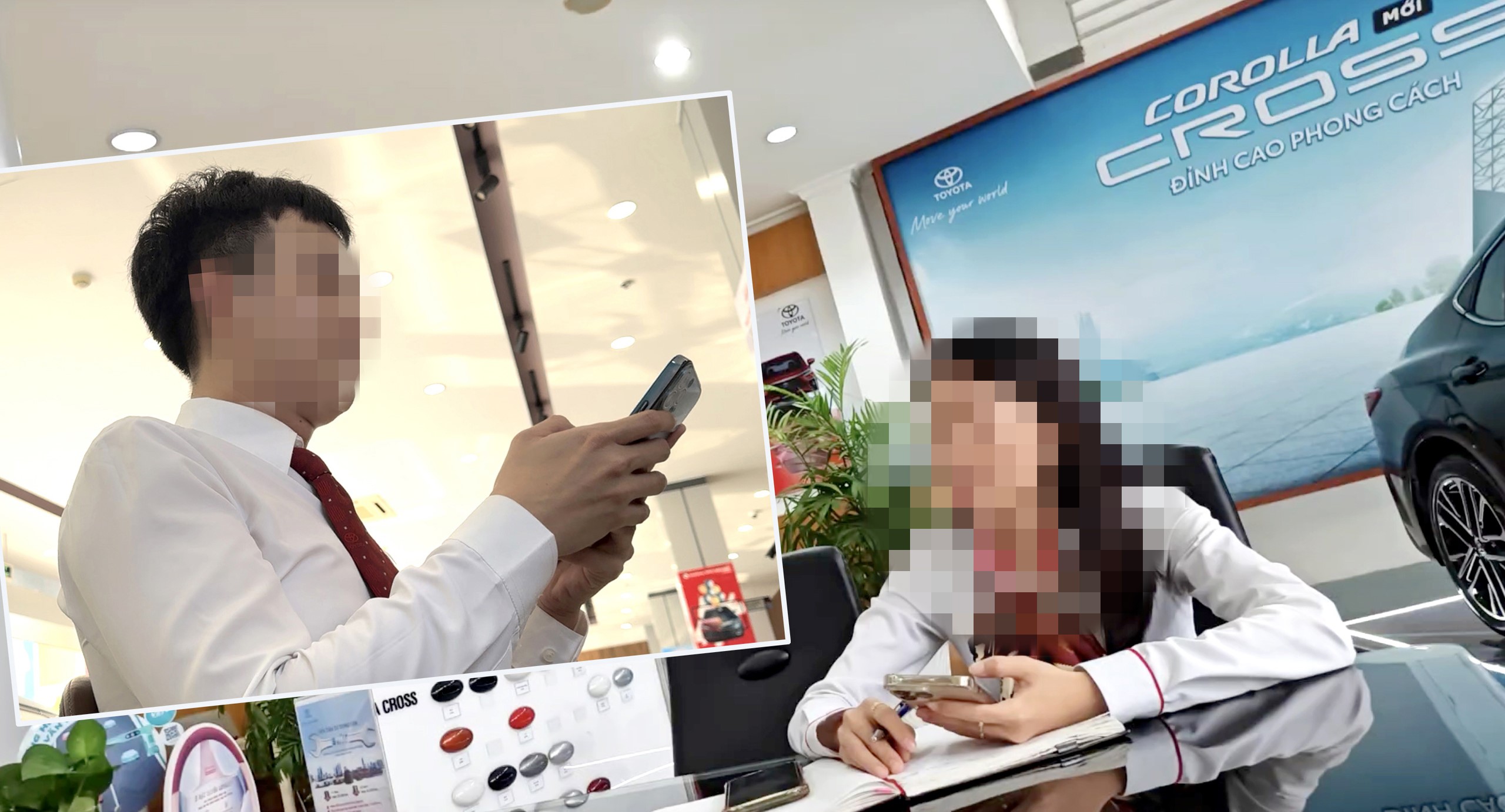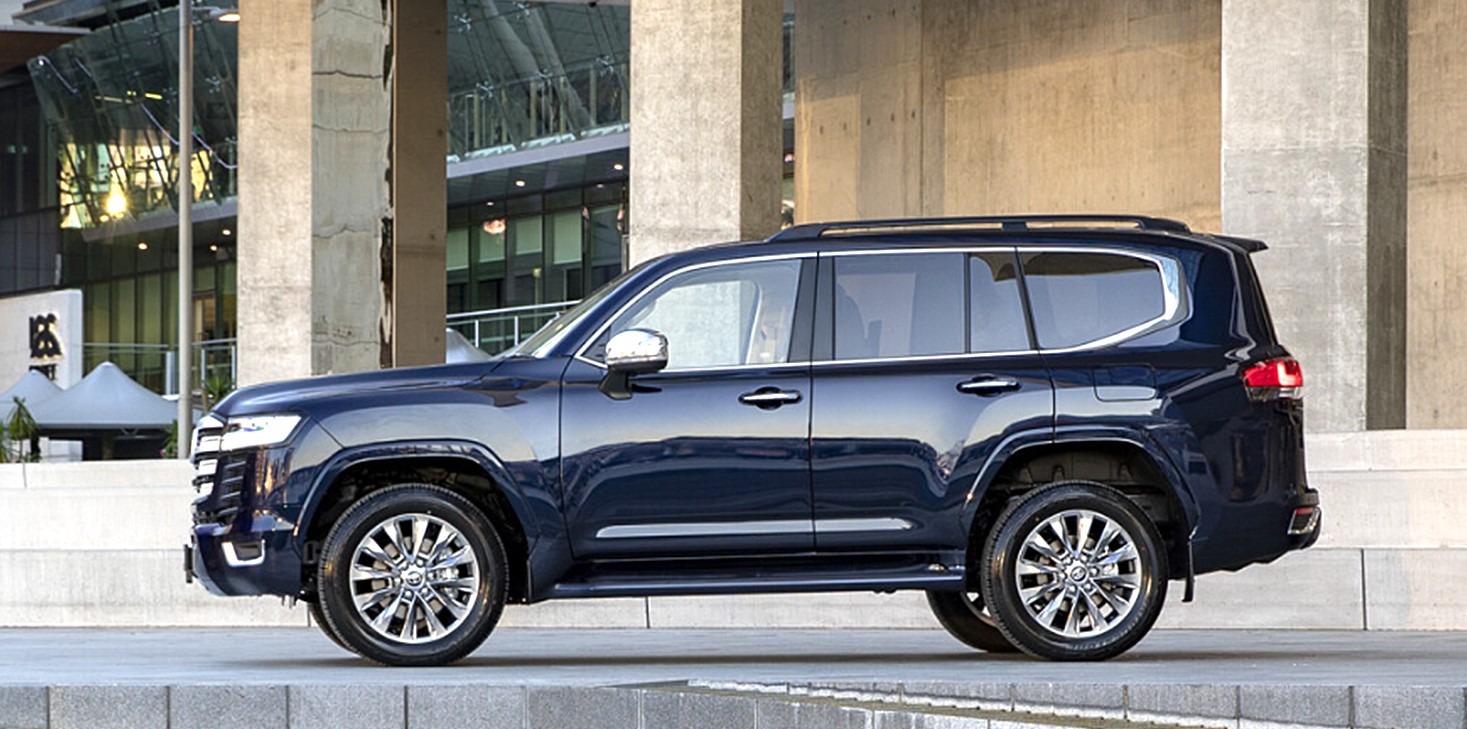Buying a high-end Toyota, especially the Land Cruiser 300 has become a test of patience, connections, and financial flexibility.
Toyota customers in Ho Chi Minh City face steep markups, under-the-table payments, and limited transparency in pursuit of luxury vehicles.
Purchasing a high-end Toyota, especially the Land Cruiser 300 -- often dubbed the 'Chairman's Car' -- has become a real test of patience, pull, and deep pockets.
Despite being a customer-centric industry, Toyota buyers often face price markups of up to VND800 million (US$31,225) and must navigate opaque dealership practices to secure a vehicle.
'Cash only, no invoice': A tactic for tax evasion?
An early 2025 investigation by Tuoi Tre (Youth) newspaper reporters into multiple authorized Toyota dealerships in Ho Chi Minh City revealed widespread under-the-table payments, undocumented transactions, and questionable tax compliance.
At a Toyota dealership in Tan Binh District, a sales representative disclosed that the Land Cruiser 300 was not readily available and typically required a wait of one to two years.
Customers looking to skip the line were told to consider 'external sources,' involving significant markups and compulsory accessory bundles colloquially referred to as 'beer bundled with peanuts.'
These markups, of course, were unlisted.
At the Toyota East Saigon branch in Thu Duc City, staff described a VND700 million ($27,322) surcharge above the listed price, with no official documentation.
Customers were told to pay immediately to secure delivery, often before receiving a formal contract.
Deposits alone were insufficient without the additional cash, and priority went to those with personal connections or who agreed to the markup.
At the Go Vap District branch, a dealership employee explained that an extra VND800 million had to be paid either in cash or via personal bank transfers.
The employee also said that no invoices would be issued.
“Tax authorities are stricter now, so it’s impossible to issue invoices for these payments,” the employee said.
An employee at the Thu Duc branch was more explicit: all unofficial payments had to be made in cash.
The dealership even offered to send staff to accompany customers to the bank to withdraw money.
When asked if any perks were included, such as accessories or a share of the markup, most employees said 'no,' noting that the commissions from such markups were small, typically VND5-10 million ($195-390), due to being divided among multiple people.
Attorney Tran Minh Hung of the Ho Chi Minh City Bar Association noted that these cash-only, undocumented payments could be considered tax evasion.
Confirming this, however, would require a formal investigation by the taxman.
|
|
| This screenshot shows a Land Cruiser 300 on an online review page. |
'Gift cars, not personal vehicles'
Even within dealerships, sales staff showed little enthusiasm for Land Cruiser 300 transactions. An anonymous employee from a District 1 showroom said the model is often treated as a 'gift car,' used to cultivate business relationships rather than for personal use.
Toyota sets monthly sales targets, but the Land Cruiser has fewer quotas due to limited supply.
Staff are expected to greet all customers, but buyers who request full invoices or company purchases often receive less attention and salespeople often do not follow up with customers who demand invoices.
“There’s anxiety,” said one Toyota employee. “Customers pay but don’t know what comes next."
He recalled a buyer who backed out after learning the markup approached VND1 billion ($39,030) ahead of the Lunar New Year holiday in February.
Despite the steep premium, the employee would have earned only VND10 million ($390) in commission.
Delivery timelines, too, remain vague. Dealerships offer 'expected' delivery dates but make no guarantees.
Clients who wait without paying more may lose their place, while dealerships hold onto customer funds with little accountability.
Similar payment practices were observed at the Toyota Hiroshima Tan Cang dealership, one of Ho Chi Minh City’s most prominent authorized Toyota outlets.
At the dealership in Binh Thanh District, a salesperson identified as Vinh (name changed) quoted the official price of the 2025 Land Cruiser at VND 4.58 billion ($178,812).
However, to take delivery by mid-2025 -- faster than the usual waiting time -- customers were required to pay an additional VND650 million ($25,370) under the table.
When asked about the possibility of even earlier delivery, Vinh made a phone call and returned with an offer: one available slot in April 2025, but it would require a higher 'off-the-record' fee of VND800 million.
Vinh explained that the official price would be fully invoiced under the company’s name, but the extra payment 'can’t be invoiced,' he said with a chuckle.
He added that it might be possible to issue an invoice for the markup through a third party -- for a 'service fee' -- and promised to check and follow up.
|
|
| Tax authorities have requested explanations from the Toyota Hiroshima Tan Cang dealership regarding customer markups. Photo: Screenshot from video |
Tax authorities step in
Following Tuoi Tre’s reporting, tax authorities launched an investigation.
When dealerships accept off-the-record payments, Vietnam’s tax system loses both VAT (10 percent) and corporate income tax (20 percent).
For example, a VND750 million ($29,273) undocumented payment translates to a tax loss of VND225 million ($8,781) per vehicle. Across multiple sales, the financial impact is significant.
The Regional Tax Sub-Department No. II confirmed it has asked the Toyota Hiroshima Tan Cang dealership in Binh Thanh District to provide a written explanation.
Authorities are examining how the markups were recorded, who approved them, and whether any invoices were issued.
"We've requested a written explanation from the dealership. After reviewing their response, further investigations, including into other dealerships, may follow," a department spokesperson said.
Possible legal consequences
According to Article 200 of Vietnam’s 2015 Penal Code, individuals who evade taxes of VND100 million ($3,903) or more can face fines up to VND500 million ($19,516) or imprisonment for three months to one year.
Repeat offenders can face the same penalties even for smaller amounts.
Similarly, if the evaded tax amount is below VND100 million but the individual has previously been administratively sanctioned for tax evasion or convicted of this or other related crimes, and their criminal record has not been expunged before committing another violation, they will face the same penalties.
Under Vietnamese law, tax evasion includes failing to issue invoices or listing a selling price lower than what was actually paid.
Like us on Facebook or follow us on X to get the latest news about Vietnam!




















































